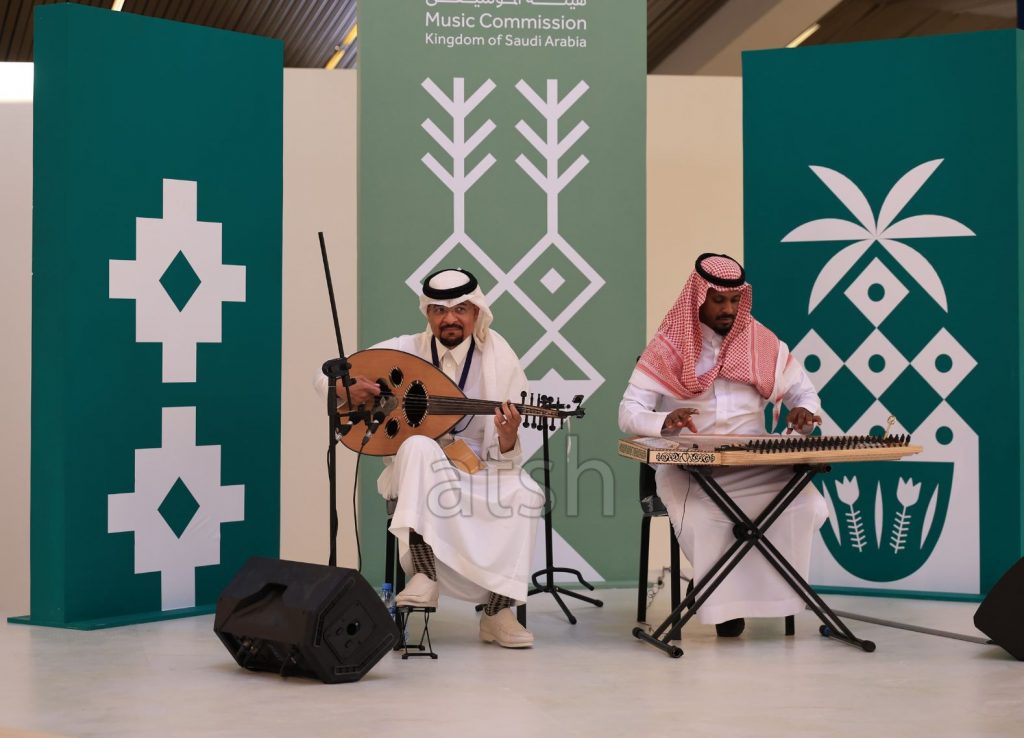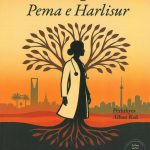By Jerina Zaloshnja
Tirana witnessed an extraordinary spectacle of art, tradition, and innovation as Saudi Cultural Week opened its doors at the Palace of Congresses, offering Albanians a rare and vibrant glimpse into the rich cultural tapestry and modern aspirations of the Kingdom of Saudi Arabia. Organized jointly by the Saudi Ministry of Culture and Albania’s Ministry of Culture, Tourism, and Sports, the five-day program represents far more than a cultural exhibition it is a dialogue of civilizations and a celebration of friendship between two nations increasingly bound by shared values of openness, creativity, and exchange.
The 2025 edition of Saudi Cultural Week aligns with the Kingdom’s declaration of “The Year of Handicrafts,” reflecting a renewed national focus on preserving and revitalizing traditional craftsmanship as a cornerstone of Saudi identity. A dedicated pavilion features ten Saudi master artisans presenting live demonstrations of traditional crafts, including Al-Qatt Al-Asiri painting, palm-leaf weaving, pottery, wood carving, and textile weaving several of which are inscribed on UNESCO’s list of Intangible Cultural Heritage. Visitors move through an immersive space where each display connects history to the present, linking centuries-old techniques with contemporary design and innovation.
The opening ceremony brought together dignitaries, artists, and cultural leaders. Blendi Gonxhja, Albania’s Minister of Culture, Tourism, and Sports, and Faisal bin Ghazi Hifzi, Ambassador of the Kingdom of Saudi Arabia to Albania, emphasized in their addresses that cultural exchange is the foundation of sustainable diplomacy. Gonxhja praised the event as “a unique opportunity to discover the depth of Saudi culture and to build bridges of cooperation in culture, tourism, and education,” stressing that both nations share an ambition to integrate cultural development with economic progress.

Throughout the week, Tirana’s audiences are treated to interactive exhibitions of Arabic calligraphy, traditional fashion, and culinary arts, including live demonstrations of Saudi coffee ceremonies and regional specialties, symbolizing the famed Saudi hospitality. A multisensory installation fuses Saudi and Albanian artistic motifs into a large-scale visual and soundscape performance, blending Al-Ardah rhythms with Albanian folk music Valle and Kaba creating an experience that transcends geography and language.
A special pavilion dedicated to the city of Taif, recognized by UNESCO as a Creative City of Literature, showcases Saudi Arabia’s emerging literary scene, connecting classical Arabic poetry with contemporary voices. Literary panels, short film screenings, and joint musical performances such as “Saudi Trouq Meets the World” reinforce the message of dialogue and global creativity that underpins the event.
Students and young entrepreneurs are also part of the experience, with a pop-up shop run by Albanian and Saudi students offering handmade souvenirs inspired by traditional Saudi design. This youth-led initiative captures the essence of cultural diplomacy envisioned by both governments inclusive, forward-looking, and participatory.
In his remarks, Ambassador Faisal bin Ghazi Hifzi underlined the deeper symbolism of the week: “This cultural event, with its exhibitions, artistic performances, and traditional music, opens a window toward an authentic culture oriented toward the future. It embodies Vision 2030, which has declared culture as a central pillar of national development and as a bridge for intercultural dialogue.”
Indeed, Vision 2030, the ambitious national reform plan spearheaded by Crown Prince Mohammed bin Salman, has positioned culture, tourism, and creativity at the heart of Saudi Arabia’s transformation. It seeks to diversify the economy away from oil dependency and toward a vibrant society rooted in knowledge, heritage, and innovation. Cultural diplomacy exemplified in events like the Saudi Cultural Week in Albania is a vital expression of that vision, showing the world a Saudi Arabia that is confident in its traditions and dynamic in its pursuit of modernization.
Minister Gonxhja, in turn, noted that Albania and Saudi Arabia share not only the ambition to grow economically but also to redefine their global image through culture. “Cultural weeks like this are laboratories of friendship where curiosity becomes connection, and art becomes dialogue,” he said. “Tourism, heritage restoration, artistic exchanges, and joint festivals are the next frontier for our cooperation.”
As visitors wander through the exhibits between the delicate strokes of Arabic calligraphy, the rhythmic pulse of Saudi drums, and the aroma of freshly brewed qahwa they encounter not only the past but also the future of the Kingdom: a society embracing openness, creativity, and global connection. For Albania, this first Saudi Cultural Week has been more than an exhibition; it has been an invitation to discover, to connect, and to imagine new partnerships rooted in culture and mutual respect. In every sense, it was not merely a week of art and tradition, but a celebration of modern Saudi Arabia’s journey of renewal and dialogue with the world.
Saudi Literature in Albanian: Words as Bridges Between Riyadh and Tirana
One of the most meaningful highlights of the Saudi Cultural Week was the launch of three major Saudi novels in Albanian translation, marking a historic step in literary exchange between Saudi Arabia and Albania. The releases Critical Condition of Patient “K” by Aziz Muhamed, The Sprouting Tree by Umaima Al-Khamis, and A Man Haunted by Crows by Yousef Al-Mohaimeed were published by Tirana Times Publishing House in cooperation with Riyadh-based Kalemat Literary Agency.
These titles follow the success of The Journey of Najdi Boy (2024), the first Saudi novel ever translated into Albanian. Together, the four works form a bridge between two literary traditions, inviting Albanian readers into the diverse worlds of contemporary Saudi thought, imagination, and identity.
“This project is more than publishing,” said Jerina Zaloshnja, Director of Tirana Times Publishing House. “It is about creating a lasting cultural bridge between Tirana and Riyadh.” She credited Dalal NsrAllah, Project Manager and Cultural Consultant at Kalemat, as instrumental in realizing this initiative “a strategic cultural milestone in the growing friendship between our two countries.”
The selected works capture the breadth of modern Saudi literature. Aziz Muhamed’s Critical Condition of Patient “K” translated into Albanian by Elmaz Fida is an introspective, Kafkaesque novel about a young man confronting illness and conformity in a conservative society. It was shortlisted for the International Prize for Arabic Fiction and hailed for its dark humor and existential power.
Umaima Al-Khamis, one of Saudi Arabia’s most acclaimed female authors, offers in The Sprouting Tree (translated by Alban Reli) a lyrical journey across continents from the Arabian Peninsula to Toronto tracing the heroine Jauhara’s search for self and belonging. Al-Khamis, a laureate of the Naguib Mahfouz Prize, represents the voice of a new intellectual generation of Arab women.
Finally, Yousef Al-Mohaimeed’s A Man Haunted by Crows, translated by Elmaz Fida, reflects on solitude and fragility in pandemic-era Riyadh. Through sparse prose and haunting imagery, the author meditates on fear, survival, and the human condition. Al-Mohaimeed, already well known to Albanian readers from The Journey of Najdi Boy, remains one of Saudi Arabia’s most internationally translated writers.
As Zaloshnja observed, the art of translation is itself a cultural act not only the transfer of language but the preservation of rhythm, metaphor, and emotion. The Albanian translators, Fida and Reli, have succeeded in capturing the lyrical depth of Arabic while resonating with the sensibility of the Albanian reader.
For Saudi Cultural Week, these literary releases were more than an accompanying gesture; they represented the intellectual core of the Kingdom’s cultural diplomacy. They bring Saudi voices to a new European audience, allowing readers in Tirana to experience the universality of Saudi literature stories of illness and hope, exile and resilience, faith and freedom.
As Saudi art, cuisine, music, and literature converged in the heart of Albania, the week stood as a vivid demonstration of how culture transcends boundaries. It showed that Vision 2030 is not only transforming Saudi Arabia’s economy it is redefining how the world understands its culture, its people, and its creative spirit.
For Albania, this cultural encounter was equally transformative a reaffirmation that the Mediterranean and the Arabian Peninsula share not only ancient histories but also modern aspirations: to learn, to connect, and to celebrate humanity through art, words, and shared vision.










